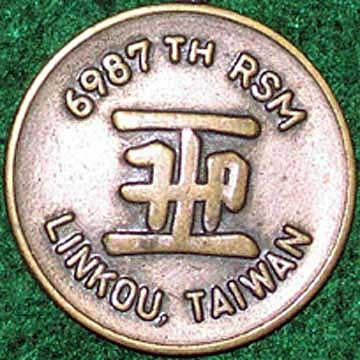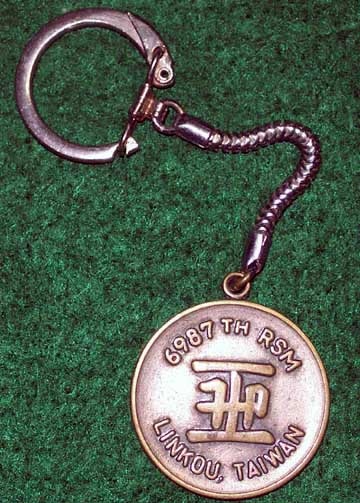| Submitted 1 April 2001 |

During the early years at Shulinkou, conditions weren't exactly ideal for the military stationed there. Things would get better as later arrivals would realize. However, for the short period of time around 1957, it was simply terrible. This is the untold story of the origin of a common phrase that many Linkouites would exclaim when things weren't going exactly the way they should have. Linkou's first unit commander has decided to release the story for all to read. Below is then-Major Stark's writing.
or I.H.T.F.P.
I would hope that most people reading this would know what IHTFP stands for; however, for those who followed in a more genteel Air Force, it stands for "I Hate This F...... Place" and could at times be heard or written in different places by members of the armed forces as an emotional outlet to express frustration when things were not going too well.
Upon my arrival at Linkou I discovered that a Major Burns (that's what we shall call him; that not being his real name) had posted a written order forbidding this expression to be used. It seems that it had become a popular expression at Linkou, and I probably used it myself after my arrival at this remote and sad looking site!
As often is the case in the military, when someone issues such stupid orders it backfires, and this one order set off a wave of IHTFPs both written and verbal! The verbal ones were usually made at nighttime, and always near the officers' quarters where Major Burns lived. He would leap from his bed and dash outside with a flashlight, looking for the perpetrators [who were nowhere to be found]. I was informed by "reliable sources" that the airmen actually made an IHTFP duty roster to insure that this took place several times each night.
We other officers thought it was hilarious, and it was a real morale booster to us! However, Major Burns was not amused, and he complained bitterly to me to do something about it. I would always tell him to get me some names and I would take appropriate action. Of course, this never happened, and I always knew from some of our key NCOs that the airmen knew we officers were aware of what they were doing, and the fact that we unofficially condoned it acted as a morale booster, and also let them know we too thought the order to be stupid. In discussions with the other officers we decided to turn this situation around by making IHTFP some type of rallying point. Someone suggested that we make it the unofficial motto for Linkou types; however, we needed to disguise it so that all Linkou people would recognize it but to disguise it in some manner that the "uninitiated" could not decipher.
The operations officer, Captain Frank Gerry, came up with the bright idea of taking the letters "I H T F P" and forming them into a Chinese-type character. We all worked on it and ended up with one that we all could decipher at once, but in testing it with some of the Chinese they were fooled that it was indeed Chinese, but none of them could tell us what it meant. Frank Gerry and I showed it to the Chinese bartender at the MAAG (Military Assistance Advisory Group) 63 Club; he looked, turned it around several times, sucked in air, and said, "This very ancient Chinese; I cannot read it!" So, that was good enough for us, and we then decided to have key chains made with Det. 1, 6925 RGM at the top and Linkou, Taiwan at the bottom, with our Chinese character in the center. [We had this done by a company in Japan that made such items for the military.] These were a big hit with all Linkou types, and when we were made a squadron we had more made with 6987th RSM on them. I still have mine and treasure both of them.

In conclusion, the story behind IHTFP was well known by all Linkou people during my tour there, and when I asked Captain Gerry if he could do anything to make our so-called briefing room more like a briefing room should look prior to a scheduled visit by General Blake, he told me that a group of his operations people were going to do it. But they asked that I stay out until it was finished. I agreed, and when it was finished I could not believe what they had done with a former storage room. It looked great, but right across the top of the projection screen were the words "In Honest Toil For Peace" with the letters IHTFP in large print. I was not sure we should leave it, but after thinking about it and appreciating all the hard work that had gone into the project I said to leave it that way.
After the briefing, General Blake congratulated us on the briefings and our new briefing room; he said he especially liked our new unique motto over the screen. He never mentioned it again, but I have always believed he knew very well what it meant, but he was the type of leader who understood the value of this type of military humor which makes light of the trials and tribulations of a unit working and living under less than desirable conditions.
So, in the final analysis, Major Burns, without ever realizing it, and certainly being unintentional, contributed greatly to the morale of Linkou.
